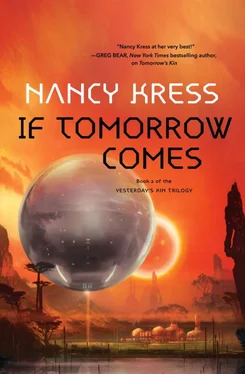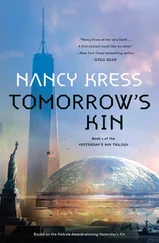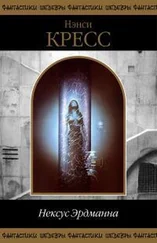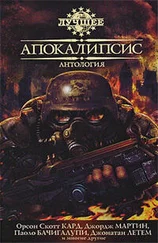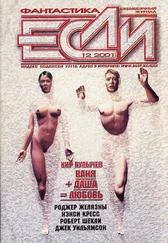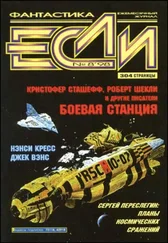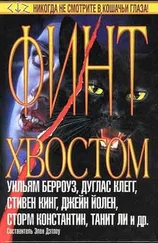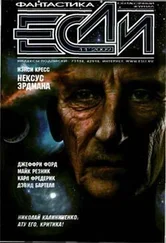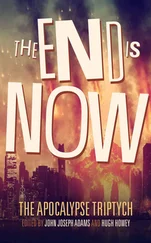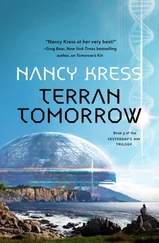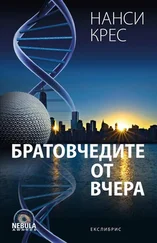Owen, it had turned out, had been one of them.
Five hundred yards away, people were hesitating, reversing direction to head back to the ship. Only a few, at first.
Then more.
* * *
Salah laid a hand on the arm of the first person he recognized, a gentle woman named Fallaabon. He had treated her rambunctious little son for a broken finger when the child had fallen from a tree near the refugee camp, one of the few occasions when the Kindred had not used their own doctors. Perhaps none had been handy. Salah spoke to Fallaabon as quickly and decisively as his Kindred would allow, explaining about the virophages, the leelees alive on the ship, the need to blast open the hull, the danger of taking her child too close to it. Others gathered to listen. Salah framed everything in terms of the children and of bu^ka^tel, at least to the extent he understood that enormously complicated concept. Obligation to her lahk, to the greater good, to the future, to the planet itself.
More people gathered to listen. Some nodded and began to move away from the ship.
Salah had lost track of Isabelle and of Leo’s cops; it was a big crowd. But less big than it had been. After half an hour, it seemed that they were making headway—people were leaving.
Then, somehow, the momentum reversed. Others were making speeches, too, Kindred with a different agenda. People still listened to Salah, but not as many, and some slid their eyes away from him and made a gesture that he had only seen associated with dung.
He saw Fallaabon lead her little boy back toward the ship.
* * *
The longer Leo hesitated, the more people had time to move themselves and their children close to the hull.
Leo had shot civilians before. Women, too, and even a kid. But they had all been credible threats to either his own platoon or to the Marines he’d been protecting. This was different. Nothing in his training or history or temperament prepared him for this.
If he fired the missile, it would—if it didn’t blow up—breach the side of the ship, letting loose Dr. Jenner’s virophage but also killing innocent men, women, kids.
If he didn’t shoot, the Kindred would take up their wrongheaded, determined position right up against the ship, convinced they were protecting themselves from plague, until four days passed, the spore cloud hit, and they all died of spore disease anyway. Or didn’t.
What if the virophage didn’t even work?
What if it did?
Kill maybe two dozen to save a planet?
He was not supposed to have to make this sort of decision. He was a sniper, and this sort of decision was supposed to be made farther up the chain of command so that Leo could obey orders. But there was no farther up this particular chain of command, and time was running out.
Leo sighted, adjusted for the freshening wind, squeezed the trigger, and fired.
The canister left the launcher without exploding. A moment later, the longest moment in history, it hit the hull of the ship broadside and tore a hole the size of a pickup. The blast shattered the air. Flying shrapnel, screaming, bodies falling to the ground.
Leo lowered his weapon and scanned the carnage, looking for Isabelle.
* * *
Salah felt it before it actually happened. How? No time to think, and the sensation was beyond thought, anyway. Brodie was going to fire. Salah knew it.
Fallaabon’s little boy turned and, still holding his mother’s hand, smiled and said something to Salah in Kindred. There was no time to answer. There was only time to act.
And to think, as he threw his body on the mother and child, This is my decision. Mine, by myself, for myself.
The ship exploded.
Marianne woke to the sound of wind outside the compound. Not a religious person, nonetheless her first thought was a fervent Thank God! Which god? It didn’t matter. They needed wind.
There had been no wind the day the ship landed. No wind as they counted the dead and buried them. No wind as Isabelle, dry-eyed but clearly only by an effort of will, stumbled through a poem over Salah Bourgiba’s grave. Marianne didn’t know the poem and was surprised that Isabelle did, but Isabelle was endlessly surprising.
Already my gaze is upon the hill, the sunny one
At the end of the path which I’ve only just begun.
So we are grasped, by that which we could not grasp
At such great distance, so fully manifest—
And it changes us, even when we do not reach it,
Into something that, hardly sensing it, we already are.
It sounded like something Salah might have taught her. Had Isabelle loved Salah? Marianne didn’t think so, even though they had been sleeping together.
The Rangers had not attended Bourgiba’s burial. Mason Kandiss had watched it from his post on the roof. Leo Brodie had had the good sense, or decency, or something—categories were so confused here—to stay inside the compound. What Brodie had done made possible Kindred’s only hope of planetary survival. It had also killed twenty-four people, ten of them children.
Marianne wondered if, circumstances permitting, Brodie would ever visit that other grave in the mountains, the one that Zoe Berman had told her about. Kandiss had dug the grave and scratched the name on the boulder acting as headstone: LT. OWEN RYAN LAMONT.
However, Marianne didn’t give much thought to Lieutenant Lamont. Her mind was full of the virophage.
How much wind? She rose from her pallet and made her way to Big Lab. In the predawn, Lu^kaj^ho stood guard at the east door. She saw with a little shock that he carried not a clumsy Kindred gun but an Army rifle. Leo Brodie’s? Owen Lamont’s?
“I greet you, Dr. Jenner,” he said in lilting English.
“I greet you, Lu^kaj^ho.”
A lot of wind, fresh and cool, in a starlit sky. In this continent slightly south of Kindred’s equator, winds blew east to west. This couldn’t possibly be better. The virophage would be carried across much of the landmass. If, of course, it was actually an airborne pathogen. If there was enough of it. If it could protect humans as well as leelees. If—
Enough.
Somewhere in Big Lab a baby cried, but no one else seemed awake. Marianne knew better—Branch would already be seated at what remained of their equipment, now all crowded into the leelee lab. The young man apparently never slept, no more than the Rangers did.
In the lab, Branch peered through a Kindred microscope.
“They’re too small to see,” Marianne said, although of course Branch knew that. Even the virophage’s host, R. sporii , was too small to see. They needed an electromicrograph, which of course they did not have.
“Look at this,” Branch said, without preamble. He got up to let Marianne at the microscope.
“Branch, there’s wind.”
He smiled. “I heard it. But look at this, Marianne. It’s tissue from the lung of an infected leelee.”
Marianne sat on the stool. As soon as the smoke cleared around the colony ship, Branch had gone inside, heavily masked. He had come out with sacks of leelees, chittering and smelling just as bad as their planet-bound cousins, even as other leelees found their own way out of the ship. Branch had described an interior full of flourishing plants, teeming fungi, and bodies that were nothing but skeletons, all soft tissue having been microscopically consumed by forty years of hothouse microbes. The whole thing, Branch said, had looked like a terrarium from a horror movie, and Marianne had decided that she didn’t need to experience it. They had the leelees.
Branch had set up fans inside the ship to blow infected air out, but that hadn’t been enough. They had needed wind, and now they had it. The incubation period of R. sporii in humans—Terran humans, anyway—was three days, which was how long the spore cloud had been on Kindred. Not that nonscientists could tell that: the cloud was silent, diffuse, invisible. But those infected would fall sick today.
Читать дальше
